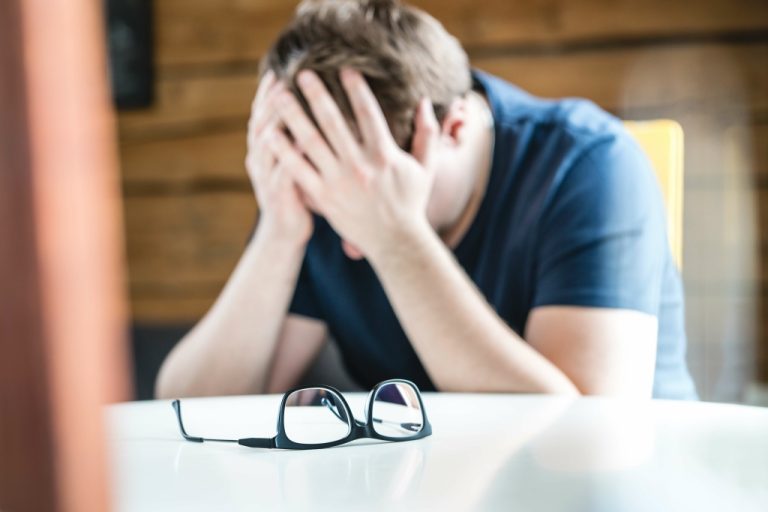A healthcare provider can prescribe medications that can help you manage symptoms such as shakes, anxiety, and insomnia. Those who sought help from their healthcare providers and were given medications to alleviate their symptoms reported milder, shorter-lived symptoms overall than those who quit on their own. However, as the first day continues and hangover symptoms subside, actual alcohol withdrawal symptoms set in, especially for daily drinkers.
Jwahl’s story: What happens when you stop drinking alcohol?
Misusing alcohol, including binge drinking and heavy alcohol use, puts you at risk for alcohol withdrawal syndrome. Typically, people who develop an AUD are at higher risk for alcohol withdrawal syndrome. Furthermore, the risk of developing an AUD, which can lead to AWS, depends on how often, how quickly, and how much alcohol someone consumes. This means that the brain and central nervous system have gotten used to the constant presence of alcohol in the body. Due to this, the central nervous system has created a mechanism to compensate for alcohol’s depressive effects on brain function. Therefore, when the amount of alcohol consumed is suddenly lowered, the central nervous system and the brain remain in a hyper-excited and hyperactive state, which is what causes the main symptoms of alcohol withdrawal syndrome.
Day 63
They’re sedatives that work by stimulating gamma-aminobutyric acid (GABA), a chemical in the brain that is involved in setting off alcohol withdrawal symptoms. Anyone who thinks they may have alcohol use disorder needs to speak with a healthcare professional. While some of the symptoms of alcohol withdrawal syndrome are similar to a hangover, they are not the same condition. People with alcohol withdrawal syndrome can have a wide variety of symptoms. These will depend on how much alcohol they drank, their body type, sex, age, and any underlying medical conditions.
- Over time, the brain adjusts by producing less calming chemical and more stimulating ones, to maintain balance.
- If left untreated, withdrawal can progress to complicated alcohol withdrawal.
- Those signs include severe agitation, rapid heartbeat (i.e., tachycardia), high blood pressure, and fever.
- In delirium tremens, the brain is not able to smoothly readjust its chemistry after alcohol is stopped.
- Be prepared.Talk to your doctor or a drug treatment specialist about what to expect.
Condition Spotlight
- It also provides an overview of the alcohol withdrawal timeline process and when to discuss your drinking with your healthcare provider.
- If you’re detoxing at home, you’ll regularly see a nurse or another healthcare professional.
- “I still feel really anxious and panicky and confused sometimes, especially in public.”
- Caffeine and energy drinks, when consumed in large quantities, can cause unwanted side effects.
If you are supporting someone through withdrawal, talk to a doctor or a drug and alcohol service before starting. You can also get medicines to help you manage and reduce nicotine dependence. Your doctor may recommend nicotine patches, gum, lozenges, mouth sprays or inhalers to reduce your withdrawal symptoms. It can also be dangerous to your health — some withdrawal symptoms can be serious and severe. Treatment of addiction withdrawal symptoms depends on the type of drugs or substance you are withdrawing from and how bad your symptoms are. The treatment plan promoted by AA is based on a 12-step programme designed to help you overcome your addiction.
What questions should I ask my healthcare provider?

The goals of treating alcohol withdrawal are to reduce symptoms, prevent complications, and help reduce or stop alcohol intake. AW seizures generally can be prevented by medications that are cross-tolerant with alcohol. For example, benzodiazepines have been shown to prevent both initial and recurrent seizures. Similarly, carbamazepine and the barbiturate phenobarbital probably can prevent AW seizures, although insufficient data exist in humans to confirm this hypothesis. In contrast, phenyotin, an anticonvulsant medication used for treating seizures caused by epilepsy and other disorders, is ineffective for treating AW seizures.
Daily drinking can cause disruptions in sleep as well, so quitting suddenly can be a shock to the system. After six days of sobriety, these people report vastly different experiences with sleep and other alcohol withdrawal symptoms. While the current clinical guideline focuses primarilyon alcohol withdrawal management, it is important to underscore that alcohol withdrawal management alone is notan effective treatment for alcohol use disorder. Withdrawalmanagement should not be conceptualized as a discreteclinical service, but rather as a component of the processof initiating and engaging patients in treatment for alcoholuse disorder. If you get withdrawal symptoms, you will need medical support to help you reduce and stop alcohol withdrawal your drinking.
Day 49

They should gradually start to improve as your body begins to adjust to being without alcohol. During alcohol detox, medication can ease your discomfort and prevent symptoms from worsening. According to Hilary S. Connery, MD, PhD, the clinical director of the division of alcohol, drugs, and addiction at McLean Hospital in Boston, withdrawal medications are suitable for most people.
Mild symptoms may begin as early assix hours after the last drinkfor some people. The time it takes withdrawal to start depends on factors like age, gender, genetics, overall health and alcohol use history. People with alcohol use disorder should be monitored by a medical professional when Sober living home withdrawing from alcohol.
What happens when you stop drinking alcohol?
Like alcohol, these agents enhance the effect of the neurotransmitter GABA on the brain. Because of their similar effects, benzodiazepines and alcohol are cross-tolerant—in other words, a person who is tolerant to alcohol also is tolerant to benzodiazepines. Cross-tolerance also implies that when a person experiences a deficiency of one agent (e.g., alcohol during withdrawal), the other agent (e.g., a benzodiazepine) can serve as a substitute, thereby easing the withdrawal symptoms. Based on the patient’s score on the CIWA–Ar, the physician determines the appropriate treatment (see table). For all patients, especially those experiencing severe withdrawal symptoms, proven benefits of treatment include amelioration of symptoms, prevention of both seizures and DT’s, and treatment of DT’s.
Alcohol withdrawal
“By day five, I started exercising, and by day seven, I cranked the intensity up from there. My skin and eyes look better, and the bloated stomach is starting to recede.” “I am starting to feel more human. The exhaustion has gone away, and my concentration seems better.” “I’m feeling fantastic. I have lost weight, and my skin looks amazing I suffered from rashes all over my body and face. My energy and confidence are back. It is wonderful.” “Most symptoms are gone except constipation and occasional shakes. Been sleeping really good.”
If you have severe vomiting, seizures, or delirium tremens, the safest place for you to be treated is in a hospital. For delirium tremens, treatment in an intensive care unit (ICU) is often required. In an ICU, your heart rate, blood pressure, and breathing can be monitored closely in case emergency life-support (such as artificial breathing by a machine) is needed. If you drink heavy amounts of alcohol for weeks, months, or years, you may have mental and physical symptoms when you stop or cut back. Other risk factors include previous episodes of severe alcohol withdrawal.

